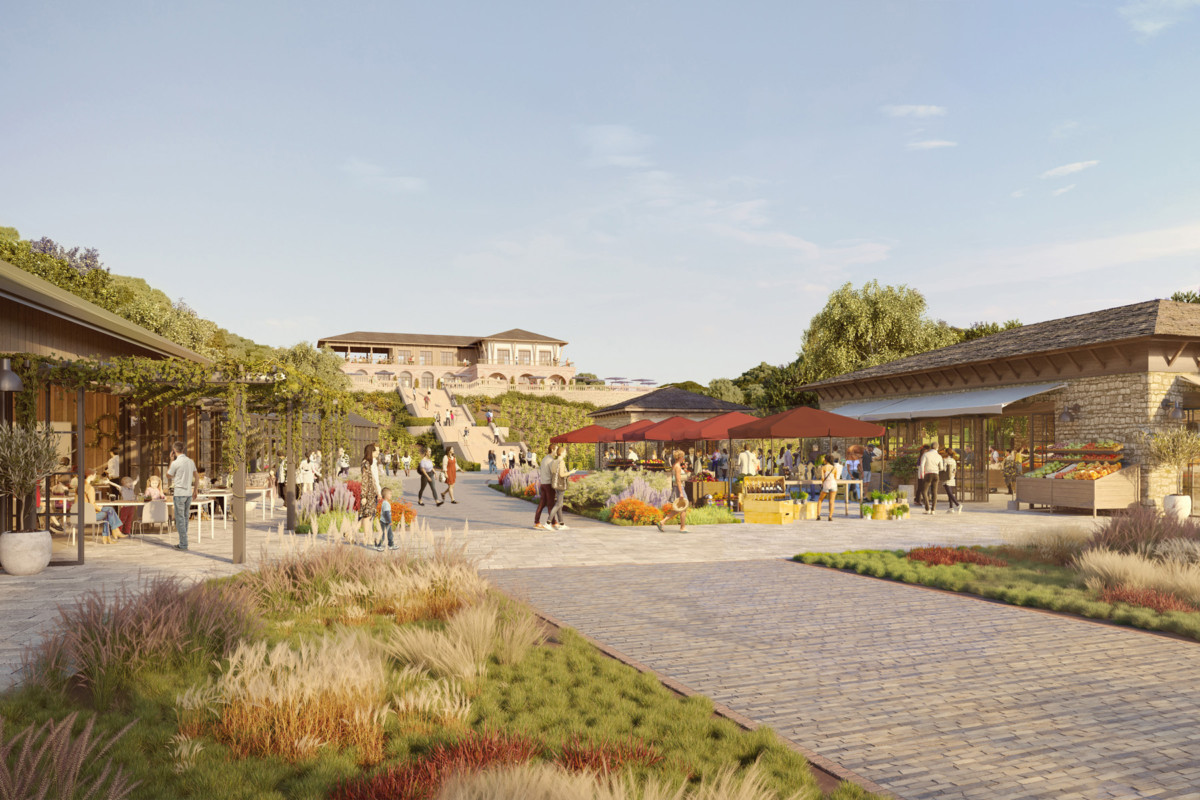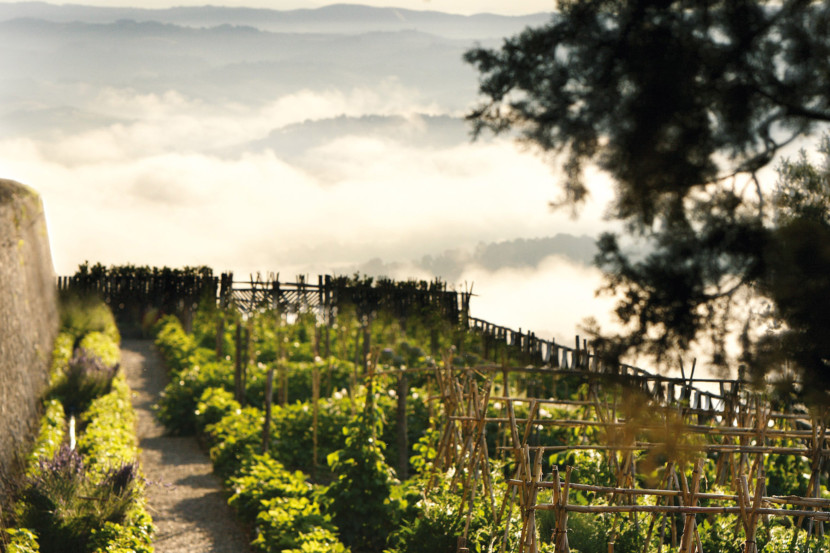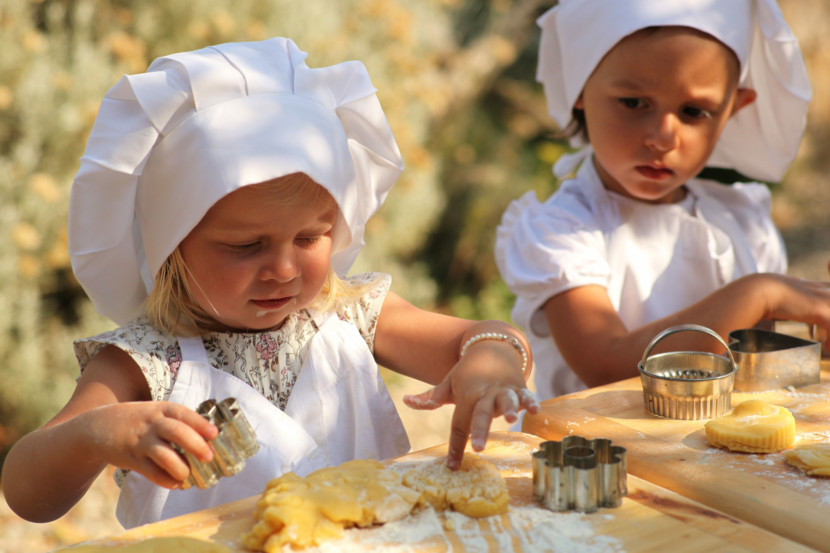The Nature of Space | Beyond the Tasting Room
During this time, in addition to feeling a deeper appreciation for nature and thirst for adventure, people are renewing interest in wholesome, grounding activities like cooking, baking from home, and gardening. By blending edible landscapes into resort environments, hotel designers can combine decorative and functional purposes, connect guests to nature, and awaken their curiosities with hands-on activities.
In Tuscany, Italy, EDSA helped to create an authentic experience with the historic renovation of Castiglion Del Bosco, a centuries-old 4,600-acre Brunello winery estate near Montalcino, Italy located in the Val d’Orcia Region of a UNESCO World Heritage Site. In addition to over 40km of hiking, biking and equestrian trails available through the Castiglion Del Bosco program, the Borgo (village) at the core of the property contains an organic kitchen garden that supplies the restaurants, villas and cooking school with over 3,000 pounds of fruits, vegetables, and herbs per year. This traditional celebration of the land and local food is an authentic manifestation of a simpler, healthier, and more grounded luxury resort experience.
SB Architects is currently working at the intersection of authenticity, agriculture, and farm-to-table culinary activities in designing a world-class luxury resort and residential community on previously untapped land in Albania. Rather than bringing in landscaping that is not in harmony with the surrounding environment, we are working alongside EDSA to explore fruit varietals such as pomegranates, and plants indigenous to the area to authentically connect guests to the agricultural landscape. Getting closer to the source, guests will be able to harvest lavender on-site and make products like soap with it or collect eggs from the chickens and bring them back to the chef for a meal prepared through their active participation in nature.
The goal is to create farm and winery experiences that deepen seeing, touching, and tasting. Experiencing a hidden jewel on the Adriatic Sea, guests and residents will connect with the land and local community by farming, harvesting, and assisting in the preparation and production of their own culinary experience. The farm-to-table movement has lifted our eyes to trace the origins of food, and post-pandemic, travelers may have a keener interest in experiencing a place through its agricultural systems. To reveal how things are grown and harvested in Durrës, Albania, we are planning a ‘farm-to-table’ restaurant that will give guests fresh, produce-led, seasonal menus, and a unique insight into the agricultural process.
Nearby the restaurant, a hillside winery and wine caves will immerse guests in the winemaking process, from participating in the harvest to learning more about vinification. The project gets beyond the tasting room by revealing the process and surrounding context, from the grapes that are cut and destemmed to what happens to the skins and compost. As Ralph Waldo Emerson wrote in his essay Nature, “Nature, in its ministry to man, is not only the material but is also the process and the result. All the parts incessantly work into each other’s hands for the profit of man.” Hence when incorporating nature in hotel design, it is important for guests to taste and see, demystifying processes from which they have been separated.
Originally created for and published on Hotel Executive as ‘In Crisis, New Meaning: Incorporating Nature in Hotel Design’.







